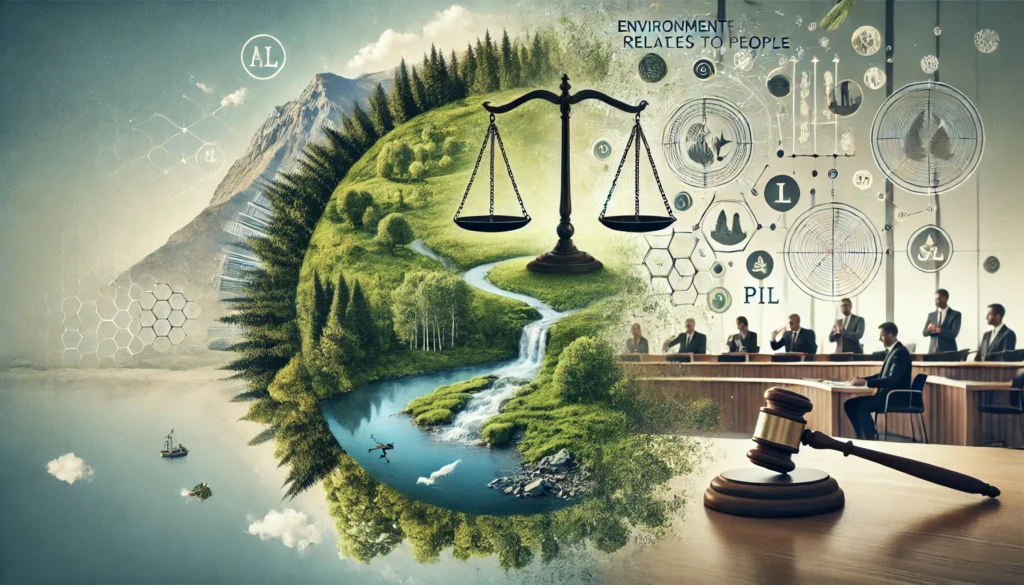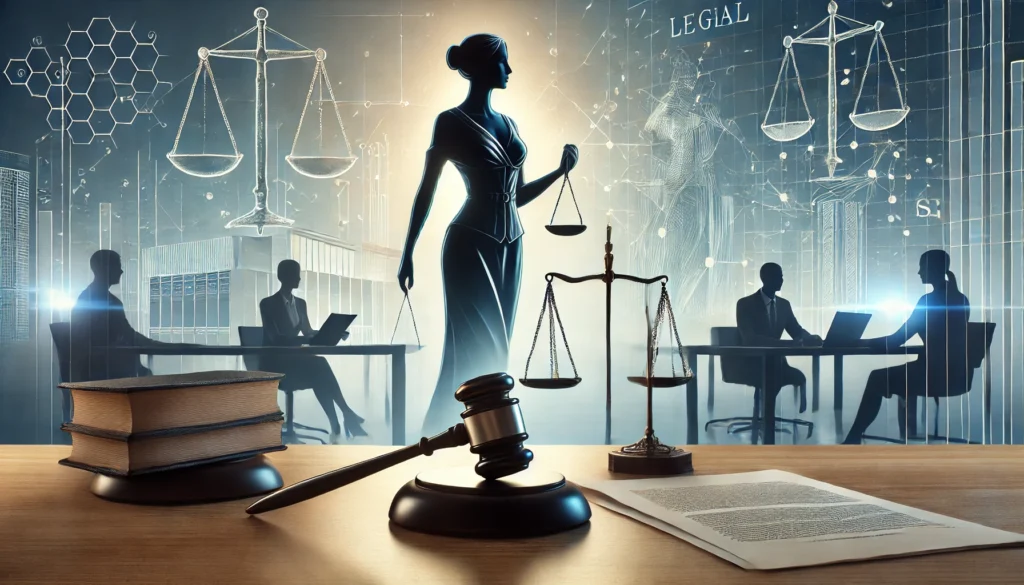Published On: 15th September, 2024
Authored By: Pokala Neha
ABSTRACT
Terrorism is defined as the illegal use of force and intimidation, particularly against civilians, for political purposes, as well as actions that go against the core tenets of the international rule of law. Terrorism remains as a significant threat to international peace and security as it violates the rule of law and fundamental human rights. The rule of law requires that the measures taken to combat terrorism must be in accordance with international law, including the principles of legality, proportionality, and non-discrimination. The relation between Terrorism and the rule of international law is wide. Terrorism involves violence, destruction, threat to public safety. The acts of terrorists infringes basic human rights of an individual which are right to life, freedom from torture, freedom from slavery, right to be treated with humanity and it is the responsibility of the government to take necessary measures in order to protect the basic human rights of an individual. Human rights play a central and crucial role in international law. They are the foundational principles that guide the behavior of states and international organizations in their interactions with individuals and other states.
This paper gives an insight about the legislative measures, treaties, conventions which were adopted in order to combat the terrorism, it also deals with the question how the terrorism be deterred through global rule of law. This paper deals about the terrorism and international humanitarian law, legal responsibility for acts of terrorism and right of self defence. It also discusses about the Indian legal framework in connection with the terrorism.
KEYWORDS:- Terrorism, International rule of law, Human rights, International Humanitarian Law, Self defence.
-
INTRODUCTION
- Terrorism
The word terror, means a sense of fear usually coming from a unknown and unforeseeable threat. Later, in 1793, the convention declared terror in response to the threat of foreign invasion and civil turmoil at the close of the eighteenth century. According to this norm, “terrorism” refers to the use of terror by the state. Once again in the late nineteenth century, anarchist and nihilist attacks in Europe and Russia were labeled as terrorist activities, As the result of this, the word terrorism not only refers to terror acts by state but terror acts against the state.[1] Later, the terror acts of state were justified in the name of dictatorship. However, now mostly the acts of violence against the state are being considered as terrorism.
The increase in mass media has also enabled terrorist to spread their messages through media, social media, etc. This aids the terrorists in amplifying the terror they hope to propagate. It is necessary to define terrorism since not doing so will make it more difficult to implement countermeasures. But as long as the word itself is kept silent, it is still feasible to fight terrorism without providing a definition. According to international law, “terrorism” refers to the use of violence that has the potential to cause death or serious physical harm.
There are three conditions which needs to be met, to consider an act as terrorist act:-
- The perpetration of acts which are capable of causing death or at the physical injury, and also includes destruction of property, even there is no harm caused to lives.
- An individual or group involving together in order to achieve a particular goal.
- There must be an aim to create terror among persons, groups, more specifically among public.
The main aim of terrorist groups is not to eliminate the victim itself but to create and spread the terror among public at large. According to Judge Rosalyn Higgins, the term terrorism is without any legal significance. “It is merely a convenient way of alluding to activities, whether of states or of individuals, widely disapproved of and in which either the methods used are unlawful, or the targets protected or both.”
- Rule of International law
International rule of law, is a fundamental principle that governs relations between states in the global community. It is a cornerstone of the modern international system and serves to maintain order, resolve disputes, and promote cooperation among nations. It guarantees completeness, certainty of law, equality before law, absence of arbitrary power and proper application of law. The rule of international law is crucial for maintaining stability, promoting cooperation, and resolving conflicts in the global system. While challenges exist, such as the enforcement of international law and ensuring that all states adhere to their obligations, the rule of international law remains a fundamental pillar of the international order. The acts of terrorists often violates rule of law in many ways. Involving in violent acts such as causing injury, death and destruction of property is against the human rights, justice system and legal framework.
-
TERRORISM AND THE RULE OF INTERNATIONAL LAW
The studies relating to linkage between terrorism and rule of international law, suffers from two common misconceptions. Firstly, it was observed that many studies had taken the ideological and religious motives as the main cause for international terrorism. However, the studies overlook the basic question that what is the cause to became terrorist. Religion and ideology does not drive the people to resort to terrorist activities. Secondly, there is misconception about the international terrorist incidents. The relationship between international terrorism and the rule of law can be explained by four primary archetypal narratives. The first mechanism deals with circumstances in which domestic citizens feel powerless and dejected in the face of foreigners who violate their fellow nationals legal rights. When the foreigners are unfairly protected under domestic laws, then the citizens, residents of the country likely go against the government with the help of locally coordinated terrorist and attacks the foreign forces.[2]
The second mechanism is the transformation of helpless individuals into foreign terrorists in order to further their own objectives at home land. This happens when citizens become dissatisfied with the inadequate rule of law in their country of origin. The third situation is when the general population feels alienated and incensed about foreign entities that are conducting operations locally. In such cases, civilians does not possess power to retaliate against the foreigners. This sense of powerlessness may lead to take support from the international terrorists. The fourth mechanism is when the civilians are unhappy with their own government and there is no chance of redress because of the corrupt government. This often results in mob or any unlawful act. If the citizens are weak, then they may resort to international terrorist organizations.
- Impact of terrorism on rule of international law
2.1 State sovereignty
According to international law, “sovereignty is the ability of a state to act independently of other states in both domestic and foreign affairs”. A state is not constrained by anything other than the sovereign rights of other states. Acts of terrorism can have significant and complex effects on state sovereignty. These effects often challenge the ability of states to fully exercise their sovereign authority within their borders. Firstly, when a terrorist acts occurs in a state it may leads to loss of control of government over a particular region.
In response to terrorism, states may implement heightened security measures, including surveillance, border controls, and counter-terrorism operations. These measures may infringe on civil liberties and the privacy of citizens, potentially eroding the state’s commitment to the rule of law. Not only at national level, terrorism also creates international pressure on the states to take action against the terrorists within their borders.
The act of terrorism often involves cross border elements, in order to combat the terrorist acts the states may take extra territorial actions which infringes sovereignty of a state and further it leads to diplomatic tensions. If any state has engaged in terrorist acts, funds the terrorist groups or suspected of funding the terrorist groups, then in such cases the United Nations may impose sanctions on such states, and for example groups like ISIS and the Taliban have aimed to establish their rule over certain regions, posing a direct challenge to state sovereignty.
2.2 Human Rights and Terrorism
Human rights are a “set of fundamental rights and freedoms that are inherent to all individuals, regardless of their nationality, ethnicity, gender, religion, or any other distinguishing characteristic, these rights are considered universal, inalienable, and indivisible” and they are based on the principles of dignity, equality, and justice. Human rights serve as a foundational framework for protecting and promoting the well-being and dignity of individuals.
Terrorist acts are done with an aim to harm innocent individuals and refrain the government from taking an action, then it violates fundamental rights and human rights. The acts of violence violates the Universal Declaration of Human Rights, and it effects first generation rights (right to life, liberty and physical integrity) as well as second, third generation rights.[3] The impact of terrorism on human right has been recognized by United nations (preamble of UN Security council resolution adopted in 2017). International Covenant on Civil and Political Rights (ICCPR), deals with right to life, freedom of expression, and the right to a fair trial. International Covenant on Economic, Social, and Cultural Rights (ICESCR), addresses economic, social, and cultural rights, such as the right to work, education, and an adequate standard of living. Convention Against Torture and Other Cruel, Inhuman or Degrading Treatment or Punishment, prohibits torture and cruel treatment and sets obligations for states to prevent and combat such practices.
Terrorism violates right to life of the individuals, terrorism involves violent acts such as mass killings, bombings, using of deadly weapons all these violate basic human right of the individuals which is right to life (Article 21 of Indian Constitution). The terrorism violates freedom of speech and expression, in order to control terrorist activities the government may impose restrictions on speech, expression (Article 19(1)(a)) and information and the government may also restrict use of media, internet in such situations. Terrorism also violates freedom of movement of an individual (Article 19(1)(d)), due to security concerns, the movement of the individuals will be restricted by curfews, travel bans and security check posts. Right to education (Article 21A of constitution) and right to health of the individuals will be compromised during terrorist attacks.
2.3 International Conventions to combat terrorism
The Convention on Offenses and Certain Other Acts Committed on Board Aircraft, adopted in Tokyo in 1963 – it protects the safety of persons, property and aircraft. The 1970 Convention for the Suppression of Unlawful Seizure of Aircraft – it makes use of force, threat or intimidation to exercise control over aircraft as offence and impose penalties, the 1971 Convention for the Suppression of Unlawful Acts against the Safety of Civil Aviation (Montreal convention)- whoever perform acts of violence that effects the safety of the aircraft are punishable with penalties and prosecution, the 1973 Convention on the Prevention and Punishment of Crimes against Internationally Protected Persons including Diplomatic Agents – to protect the international protected person, the 1979 International Convention against the Taking of Hostages – any person who seizes or detains and threatens to kill, to injure, to compel a State, an international intergovernmental organization, a natural or juridical person, to do or refrain from doing an act will be penalized and the 1980 Convention on the Physical Protection of Nuclear Material – it criminalizes the use, theft of nuclear material.[4]
“Three treaties were adopted in 1988: the Convention for the Suppression of Unlawful Acts against the Safety of Maritime Navigation, a Protocol to that Convention for the Suppression of Unlawful Acts against the Safety of Fixed Platforms Located on the Continental Shelf and protocols for the convention” – to punish the person who involve in violent acts , terrorism on ships and Convention of the marking of Plastic explosives for the purpose of detection, 1991. The “1997 International Convention for the Suppression of Terrorist Bombings[5] – it provides universal jurisdiction over the intentional and unlawful use of explosives and lethal devices in public places and the 1999 International Convention for the Suppression of Financing of Terrorism[6]”- requires the parties to take measures to prevent terrorism and punish states who funds the terrorist acts. Palermo convention (2000), International Convention for the Suppression of Acts of Nuclear Terrorism[7], adopted by the UN General Assembly on 13 April 2005 – it covers attempt to commit violence, accomplice, crisis situations and post crisis situations. Council of Europe’s 2005 Warsaw Convention on the Prevention of Terrorism and the additional protocol on the Prevention of Terrorism- criminalizes terrorist activities and convention on the suppression of unlawful Acts, relating to International Civil Aviation, 2010 adopted by UN. Counter terrorist strategies were adopted in 2018, 2023 to combat the terrorism.
2.4 International Justice System
The rule of international law, requires that every individual must adhere and be accountable to justice system. International justice system governing terrorism is Delicta juris gentium, means the crimes which address the responsibility of the individuals and which shock the conscience of nations. The individuals who commit such crimes are responsible and can be held liable before the international courts. Ad Hoc and hybrid tribunals were established to protect the international peace and security and for adjudicating cases of “war crimes, crimes against humanity and genocide”. International Criminal Court is a permanent court established by Rome statute. It does not have universal jurisdiction, only when the accused is national of the state, if crime happens within the territory of the state or if the state accepts the jurisdiction of the court and if the UNSC refers the matter to ICC.
The ICC Statute does not provide jurisdiction for prosecuting an offence of “terrorism” but may prosecute terrorist acts if they amount to “war crimes, crimes against humanity, or genocide”. In Al Mahdi case, he was prosecuted guilty as a “co-perpetrator of the war crime consisting in intentionally directing attacks against religious and historic buildings in Timbuktu, Mali.[8]” If the acts of terrorism have taken place within the context of armed conflict then it amounts to war crimes. The question, whether any act of violence or terrorist act amounts to crime against humanity (Rome statute) or not will depend upon the degree of the crime. Terrorist acts may only fall under the scope of genocide (Convention on prevention and punishment of genocide, 1948) when there is intention “to destroy, in whole or in part, a national, ethnic, racial or religious group, as such.[9]”
2.5 State Responsibility
If any individual or group of individuals of a state involve in violent acts then the state is responsible for the acts caused by the individuals. This is because the state has the obligation to prevent the individuals, citizens of its nation to involve or resort to violent acts such as terrorism. States are responsible for preventing and combating terrorism within their territories, It is only responsible when it has not made any due diligence to prevent the acts of violence.[10] When a state fails to take action against terrorist groups operating within its borders, it can be accused of supporting or condoning terrorism.
2.6 International Cooperation
If a state is accused of sponsoring or supporting terrorism, then it can face isolation, sanctions and its relation with other states will be strained. Terrorism may strain international cooperation and diplomatic relations. States may hesitant to share good relations with the states who support or sponsor terrorist acts because of fear of isolation in international platform and also due to political considerations.
-
MEASURES TO COMBAT TERRORISM
3.1 Counter-terrorism measures
One of the best way to combat terrorism is to enact legislation’s which punishes, prevents the use of violence and terrorist activities. States should enter into treaties, conventions, protocols to combat the terrorism. Such legal instruments will prevent the individuals as well as states to support the terrorist acts. Developing and enacting comprehensive counter terrorism laws and regulations that criminalize acts of terrorism, provide for prosecution and penalties, and establish mechanisms for the prevention and investigation of terrorist activities. The United Nations Global Counter-Terrorism Strategy comprises a set of measures to address the factors that encourage terrorism, prevent and combat terrorism, strengthen the UN role, and take steps to uphold the rule of law and human rights.[11]
Not having legislative frameworks are sufficient, but proper implementation is necessary in order to combat the terrorism. The courts such as International criminal courts should be given jurisdiction to deal with issues of terrorism. Establishment of special tribunals, imposing penalties, Prosecuting individuals involved in terrorism and ensuring that trials adhere to international human rights standards will act as deter and may prevent the individuals from committing violent acts such as terrorism.
3.2 International Humanitarian Law
International humanitarian law (jus in bello), also known as “the law of armed conflict, is the body of rules that, in times of armed conflict, protects persons who are not or are no longer participating in the hostilities and regulates the methods and means of warfare.” Its primary goal is to prevent or mitigate human suffering during times of armed conflict. These regulations govern not only how the government and its armed forces conduct themselves, but also how armed opposition groups operate. Humanitarian law only applies when the acts occurs during armed conflicts. IHL refers to terrorism and acts of terrorist, The“Fourth Geneva Convention (article 33) states that collective penalties and likewise all measures of intimidation or of terrorism are prohibited”, while Additional Protocol II (article 4) prohibits “acts of terrorism” against persons not or no longer taking part in hostilities.[12]
3.3 International Refugee Law
international refugee law aims to protect the rights of refugees and asylum seekers, ensuring that they are not subjected to persecution or returned to situations of danger. On the other hand, counter-terrorism efforts are designed to prevent and combat acts of terrorism that may involve individuals who seek asylum or refuge in other countries. The Refugee law is dependent on Non Refoulement Principle, it prohibits the expulsion, return of refugees and asylum seekers to the place where their life would be threatened.
-
TERRORIST ATTACKS
4.1 September 11, 2001 Attacks (USA)
Nineteen terrorists connected to the Islamic extremist organization Al-Qaeda carried out a series of airline hijackings and suicide assaults against the United States in 2001, which are collectively known as the 9/11 attacks. All 19 Militants died in the attacks. The group of terrorists boarded four different domestic aircraft’s. The first plane piloted into north tower of World Trade centre in New York. Second flight struck the south tower, third flight struck into the Pentagon and fourth flight crashed near Shanksville. Commission was appointed to look into the attacks, in the report it submitted about the “development of al-Qaeda, its evolution into the organization that carried out the September 11 attacks, and the central leadership role played by Osama bin Laden”.[13] After the attacks major steps had been taken to combat terrorism, United States established a dedicated Department of Homeland Security, Patriot Act was also signed by the president of USA and also it spearheaded global counter terrorism programme.
4.2 London 7/7 Bombings (UK)
The 7/7 London bombings were a series of four planned suicide assaults carried out by Islam terrorists . The perpetrators specifically targeted London public transit commuters. A total of 52 individuals were killed and hundreds more were injured when three bombs detonated in London’s underground trains and another explosive went off on a double-decker bus. Eventually, it was discovered that the suicide bombers were Pakistani immigrants Hasib Hussain, Shehzad Tanweer, and Muhammad Sidique Khan. Later, response to these attacks was very quick, it was found that al Qaeda did not have role in those attacks.[14] In 2007, Two years after being detained for aiding in the terrorist planning, three Muslims were found not guilty.
4.3 Mumbai Attacks (India), 2008- Mohammed Ajmal Mohammad Amir Kasab @ Abu Mujahid V State of Maharastra[15]
On November 26th, 2008 a series of terror had started in Mumbai, the terror had unfolded in three locations (Nariman House, Hotel Oberoi Trident and Taj Mahal Palace and Tower) where hostages were kept hold by terrorists. More than 300 people were injured, and at least 174 people—including 20 members of the security forces and 26 foreign nationals—were killed. Of the ten terrorists, nine were killed and one was taken into custody. Ajmal Amir Kasab, a lone terrorist who was apprehended, claimed that ten or more terrorists received extensive training in guerrilla warfare at the Lashkar-e-Taiba camps.
4.4 Taliban
Taliban, an Islamist militant group led by Mawlawi Hibatullah Akhundzada that has been involved in a long-running conflict in Afghanistan, and involved in acts of violence which can be classified as terrorist acts. After fighting an insurgency against the government backed by the United States and as a result of a peace accord, they reclaimed control in Afghanistan in 2021. They had carried out suicide bombings, often targeting crowded public places, such as markets, mosques, and schools. Taliban has targeted Afghan government officials, military personnel, police officers, and tribal leaders through assassinations.
4.5 Hamas attacks
The conflict between Hamas and Israel is a long-standing and deeply complex geopolitical issue. It involves multiple factors, including historical, political, religious, and territorial disputes. The Palestinian militant group Hamas supported by Iran by providing it with funding, weapons and training launched an “unprecedented attack on Israel on 7 October, killing more than 1,400 people and taking scores of hostages”, After Israel launched its retaliatory air strikes, more than 2700 people have been died in Gaza.[16] It blocked all basic necessities such as food, water, electricity and said it would not stop until Hamas release the hostages. Both the countries denied the blame. The present condition in Gaza is terrifying, many people are suffering from hunger and in addition to it people including children are being killed by Israel.
-
EXISTING LEGAL FRAMEWORK IN INDIA
In India, in order to combat the terrorism, legislation’s such as Terrorist and Disruptive Activities (Prevention) Act 1985 (TADA), Prevention of Terrorism Act (POTA) of 2002 & Unlawful Activities Prevention Act, 1967 (UAPA), National Security Act, Armed Forces (Special Powers) Act 1958 (AFSPA). Later, TADA and POTA were repealed. At present UAPA, National Investigation Agency (NIA) Act, 2008, Anti-Hijacking Act, 2016, Preventive detention Acts and International legal instruments are some of the legal instruments which helps to combat terrorism. Recently, PM Narendra Modi said “the world must evolve a common legal framework, on the lines of universal air-traffic control regime, to fight terrorism and disruptive forces that operate across jurisdictions to harm humanity.[17]”
- Suggestions
Good governance can solve the people’s problems and they may not resort to violent acts, maintaining well trained, well equipped security forces and efficient intelligent agencies, efficient police force can combat terrorism. Enactment of laws to combat terrorism, free and independent judiciary will help to combat the terrorism.
CONCLUSION
Terrorism and rule of international law will gives an insight about how acts of terrorists can violate the rule of law. It is the duty of the state to prevent its citizens to resort themselves to violent acts. However, if state fails then the situation of terror occurs and it subsequently violates the rule of law. Mainly, terrorism violates human rights, state sovereignty, legal instruments, rules of criminal justice system. States should take sufficient measures to prevent the terrorism nationally and internationally.
References:
[1] Gilbert Guillaume, ‘Terrorism and International Law’ (2004) 53(3) The International and Comparative Law Quarterly <https://www.jstor.org/stable/3663289> accessed 29 May 2024.
[2] Seung-Whan Choi, ‘Fighting Terrorism through the Rule of Law?’ (2010) 54(6) The Journal of Conflict Resolution <https://www.jstor.org/stable/25780761> accessed 30 May 2024.
[3] ‘TERRORISM AND HUMAN RIGHTS: THE PERSPECTIVE OF INTERNATIONAL LAW,’ (Jstor, 1 June 2018) <https://www.jstor.org/stable/resrep19954.9> accessed 01 June 2024.
[4] Daniel O’Donnell, ‘International treaties against terrorism and the use of terrorism during armed conflict and by armed forces’ (2006) 88(864) International Review of Red Cross <https://www.corteidh.or.cr/tablas/a21937.pdf> accessed 2 June 2024.
[5] International Convention for the Suppression of Terrorist Bombings (New York, 15 December 1997) No. 37517, entered into force on 23 May 2001.
[6] International Convention for the Suppression of Financing of Terrorism (New York, 9 December 1999) No. 38349. Reference, Entry into force on 10 April 2002.
[7] International Convention for the Suppression of Acts of Nuclear Terrorism (New York, 13 April 2005) vol. 2445, p. 89; A/RES/59/290, entered into force on 15 September 2005.
[8] Situation in the Republic of Mali (The Prosecutor v. Ahmad Al Faqi Al Mahdi), Reparation, Judgment, ICC Rep 2015.
[9] ‘International Law Aspects of Countering Terrorism’ (United Nations Office on Drugs and Crime) <https://www.unodc.org/documents/terrorism/Publications/FAQ/English.pdf> accessed 2 June 2024.
[10] S.K. Kapoor, International Law & Human Rights (Central Law Agency, 18th Edn, 2011) 140.
[11] ‘United Nations Global Counter-Terrorism Strategy’ (United Nations Office of Counter Terrorism) <https://www.un.org/counterterrorism/un-global-counter-terrorism-strategy> accessed 3 June 2024.
[12] International Law Aspects of Countering Terrorism’ (United Nations Office on Drugs and Crime) <https://www.unodc.org/documents/terrorism/Publications/FAQ/English.pdf> accessed 3 June 2024.
[13] Peter L Bergen, ‘September 11 attacks’ (Encyclopedia Britannica, 22 September 2023) <https://www.britannica.com/event/September-11-attacks> 4 June 2024.
[14] Michael Ray, ‘London bombings of 2005’ (Encyclopedia Britannica, 30 Jun. 2023) <https://www.britannica.com/event/London-bombings-of-2005> 4 June 2024.
[15] Mohammed Ajmal Mohammad Amir Kasab @ Abu Mujahid V State of Maharastra, (Criminal) 1899-1900 of 2011 [2012] (Supreme Court).
[16] ‘Israel Gaza war: History of the conflict explained’ BBC (17 October 2023) <https://www.bbc.com/news/newsbeat-44124396> accessed 04 June 2024.
[17] Dhananjay Mahapatra, ‘Common World Legal Framework needed to fight terrorism’ The Times of India (24 September 2023) <https://timesofindia.indiatimes.com/india/common-world-legal-framework-needed-to-fight-terrorism-pm-modi/> accessed 4 June 2024.





